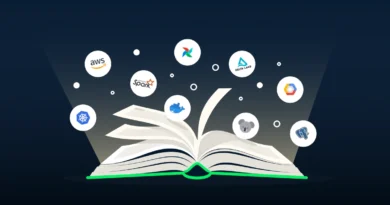Free Junior Software Developer Course (6Months)
Junior Software Developer:
Brief Job Description: Individuals in this job are assigned one of the many entry level roles in the software industry including support and help desk, testing, user interaction design, maintenance, enhancement, development and documentation. They are responsible for assisting in performing the key activities and tasks involved in the assigned role.
Personal Attributes: This job requires the individual to be flexible and operate under supervision for the area of work he/she is aligned to. The individual should have the necessary technical competency and be able to communicate effectively and work collaboratively. He/she should also have a willingness to learn and undertake a desk job entailing long hours.

Assist in performing software construction and software testing:
Performance Criteria
To be competent, you must be able to:
PC1. demonstrate basic computer and internet literacy including operating a computer, describing its major components and how they work, using Windows and Linux OS, operating a browser, searching the internet, managing mails and using social internet media.
PC2. demonstrate aptitude for analyzing information and making logical conclusions.
PC3. demonstrate knowledge of the foundational mathematical concepts in computing.
PC4. design algorithms to solve problems and convert them into code using the appropriate programming language constructs.
PC5. read and execute a test case and record the outcome in the appropriate template.
PC6. be able to communicate effectively with appropriate people w.r.t. assigned roles in simple English – both oral and written.
Organizational Context
You need to know and understand: KA1. the responsibilities, policies and guidelines associated with entry level roles for entry level software developers in your organization KA2. the formal and informal continuous learning opportunities offered by your organization KA3. your organization’s knowledge base and how to access and update the same KA4. the scope of work to be carried out and the importance of keeping within these boundaries KA5. who you may need to involve to provide feedback on your work KA6. the importance of collating feedback on your output KA7. standard templates and tools available and how to use these documents at your work
Technical Knowledge
You need to know and understand: KB1. basic components of a computer, Windows and Linux OS, file systems and task and process management KB2. web browsers, the World Wide Web, internet mail, internet search, web-based social media applications and web programming KB3. logical analysis, problems solving skills, process approach, algorithmic thinking and pseudo code KB4. foundational concepts of computation and mathematics including binary arithmetic and number sense, discrete mathematics and numerical descriptive measures of data KB5. programming language fundamentals and implementation of algorithms KB6. data base skills including DBMS, data design, and querying table structures for specific data KB7. software engineering approaches to develop applications and the key processes used for developing application software KB8. how to read a detailed program specification and implement it using a programming language KB9. how to read a test case, execute the same and record the results of testing
Skills (S)
Writing Skills
You need to know and understand how to:
SA1. write well in a complete and accurate manner with attention to detail
SA2. communicate with others in writing
Reading Skills
You need to know and understand how to:
SA3. follow guidelines/procedures/rules and service level agreements
Oral Communication (Listening and Speaking skills)
You need to know and understand how to:
SA4. listen effectively and communicate information orally in an accurate manner
SA5. ask for clarification and suggestions from others
Professional Skills
Decision Making
You need to know and understand how to:
SB1. follow rule-based decision-making processes
SB2. identify anomalies in data
SB3. make decisions on suitable courses of action or responses
Plan and Organize
You need to know and understand how to:
SB4. plan and organize your work to achieve targets and deadlines
Customer Centricity
You need to know and understand how to:
SB5. carry out rule-based transactions in line with customer-specific
SB6. guidelines/procedures/rules and service level agreements
SB7. work effectively in a customer facing environment
Problem Solving
You need to know and understand how to:
SB8. apply problem-solving approaches in different situations
Analytical Thinking
You need to know and understand how to:
SB9. configure data and disseminate relevant information to others
SB10. analyze data and activities
Critical Thinking
You need to know and understand how to:
SB11. apply balanced judgments in different situations
Attention to Detail
You need to know and understand how to:
SB12. check if your work is complete and free from errors
Team Working
You need to know and understand how to:
SB14. work effectively in a team environment
Technical Skills
You need to know and understand how to:
SC1. use information technology effectively to input and/or extract data accurately
SC2. agree objectives and work requirements
SC3. keep up to date with changes, procedures and practices in your role
Manage your work to meet requirements:
Performance Criteria
To be competent on the job, you must be able to:
PC1. establish and agree your work requirements with appropriate people
PC2. keep your immediate work area clean and tidy
PC3. utilize your time effectively
PC4. use resources correctly and efficiently
PC5. treat confidential information correctly
PC6. work in line with your organization’s policies and procedures
PC7. work within the limits of your job role
PC8. obtain guidance from appropriate people, where necessary
PC9. ensure your work meets the agreed requirements
. Organizational Context
You need to know and understand: KA1. your organization’s policies, procedures and priorities for your area of work and your role and responsibilities in carrying out your work KA2. limits of your responsibilities and when to involve others KA3. your specific work requirements and who these must be agreed with KA4. the importance of having a tidy work area and how to do this how to prioritize your workload according to urgency and importance and the benefits of this KA6. your organization’s policies and procedures for dealing with confidential information and the importance of complying with these KA7. the purpose of keeping others updated with the progress of your work KA8. who to obtain guidance from and the typical circumstances when this may be required KA9. the purpose and value of being flexible and adapting work plans to reflect change
Technical Knowledge
You need to know and understand: KB1. the importance of completing work accurately and how to do this KB2. appropriate timescales for completing your work and the implications of not meeting these for you and the organization KB3. resources needed for your work and how to obtain and use these
Generic Skills
Writing Skills
You need to know and understand how to:
SA1. complete accurate work with attention to detail
Reading Skills
You need to know and understand how to:
SA2. read instructions, guidelines, procedures, rules and service level agreements
Oral Communication (Listening and Speaking skills)
You need to know and understand how to:
SA3. ask for clarification and advice from line managers
SA4. communicate orally with colleagues
Professional Skills
Decision Making
You need to know and understand how to:
SB1. make a decision on a suitable course of action
Plan and Organize
You need to know and understand how to:
SB2. plan and organize your work to achieve targets and deadlines
SB3. agree objectives and work requirements
Customer Centricity
You need to know and understand how to:
SB4. deliver consistent and reliable service to customers
SB5. check that your own work meets customer requirements
Problem Solving
You need to know and understand how to:
SB6. refer anomalies to the line manager
SB7. seek clarification on problems from others
Analytical Thinking
You need to know and understand how to:
SB8. provide relevant information to others
SB9. analyze needs, requirements and dependencies in order to meet your work requirements
Critical Thinking
You need to know and understand how to:
SB10. apply judgments to different situations
Attention to Detail
You need to know and understand how to:
SB11. check your work is complete and free from errors
SB12. get your work checked by peers
Team Working
You need to know and understand how to:
SB13. work effectively in a team environment
Technical Skills
You need to know and understand how to:
SC1. use information technology effectively, to input and/or extract data accurately
SC2. identify and refer anomalies in data
SC3. store and retrieve information
SC4. keep up to date with changes, procedures and practices in your role

Work effectively with colleagues:
Performance Criteria
To be competent, you must be able to:
PC1. communicate with colleagues clearly, concisely and accurately
PC2. work with colleagues to integrate your work effectively with them
PC3. pass on essential information to colleagues in line with organizational requirements
PC4. work in ways that show respect for colleagues
PC5. carry out commitments you have made to colleagues
PC6. let colleagues know in good time if you cannot carry out your commitments, explaining the reasons
PC7. identify any problems you have working with colleagues and take the initiative to solve these problems
PC8. follow the organization’s policies and procedures for working with colleagues
Organizational Context
You need to know and understand: KA1. your organization’s policies and procedures for working with colleagues and your role and responsibilities in relation to this KA2. the importance of effective communication and establishing good working relationships with colleagues KA3. different methods of communication and the circumstances in which it is appropriate to use these KA4. benefits of developing productive working relationships with colleagues KA5. the importance of creating an environment of trust and mutual respect in an environment where you have no authority over those you are working with KA6. where you do not meet your commitments, the implications this will have on individuals and the organization
Technical Knowledge
You need to know and understand: KB1. different types of information that colleagues might need and the importance of providing this information when it is required KB2. the importance of understanding problems from your colleague’s perspective and how to provide support, where necessary, to resolve these
Writing Skills
You need to know and understand how to:
SA1. complete accurate, well written work with attention to detail
SA2. communicate effectively with colleagues in writing
Reading Skills
You need to know and understand how to:
SA3. read instructions, guidelines, procedures, rules and service level agreements
Oral Communication (Listening and Speaking skills)
You need to know and understand how to:
SA4. listen effectively and orally communicate information accurately
SA5. ask for clarification and advice from line managers
Professional Skills
Decision Making
You need to know and understand how to:
SB1. make a decision on a suitable course of action
Plan and Organize
You need to know and understand how to:
SB2. plan and organize your work to achieve targets and deadlines
Customer Centricity
You need to know and understand how to:
SB3. check that your own work meets customer requirements
SB4. deliver consistent and reliable service to customers
Problem Solving
You need to know and understand how to:
SB5. apply problem solving approaches in different situations
Critical Thinking
You need to know and understand how to:
SB6. apply balanced judgments to different situations
Attention to Detail
You need to know and understand how to:
SB7. check your work is complete and free from errors
SB8. get your work checked by peers
Team Working
You need to know and understand how to:
SB9. work effectively in a team environment
SB10. work effectively with colleagues and other teams
SB11. treat other cultures with respect
Technical Skills
You need to know and understand how to:
SC1. identify and refer anomalies
SC2. help reach agreements with colleagues
SC3. keep up to date with changes, procedures and practices in your role

Maintain a healthy, safe and secure working environment:
Performance Criteria
To be competent, you must be able to:
PC1. comply with your organization’s current health, safety and security policies and procedures
PC2. report any identified breaches in health, safety, and security policies and procedures to the designated person
PC3. identify and correct any hazards that you can deal with safely, competently and within the limits of your authority
PC4. report any hazards that you are not competent to deal with to the relevant person in line with organizational procedures and warn other people who may be affected
PC5. follow your organization’s emergency procedures promptly, calmly, and efficiently
PC6. identify and recommend opportunities for improving health, safety, and security to the designated person
PC7. complete any health and safety records legibly and accurately
Organizational Context
You need to know and understand: KA1. legislative requirements and organization’s procedures for health, safety and security and your role and responsibilities in relation to this KA2. what is meant by a hazard, including the different types of health and safety hazards that can be found in the workplace KA3. how and when to report hazards KA4. limits of your responsibility for dealing with hazards KA5. your organization’s emergency procedures for different emergency situations and the importance of following these KA6. the importance of maintaining high standards of health, safety and security KA7. implications that any non-compliance with health, safety and security may have on individuals and the organization B. Technical Knowledge You need to know and understand: KB1. different types of breaches in health, safety and security and how and when to report these KB2. evacuation procedures for workers and visitors KB3. how to summon medical assistance and the emergency services, where necessary KB4. how to use the health, safety and accident reporting procedures and the importance of these KB5. government agencies in the areas of safety, health and security and their norms and services
Writing Skills
You need to know and understand how to:
SA1. complete accurate, well written work with attention to detail
Reading Skills
You need to know and understand how to:
SA2. read instructions, guidelines, procedures, rules and service level agreements
Oral Communication (Listening and Speaking skills)
You need to know and understand how to:
SA3. listen effectively and orally communicate information accurately
Professional Skills
Decision Making
You need to know and understand how to:
SB1. make a decision on a suitable course of action
Plan and Organize
You need to know and understand how to:
SB2. plan and organize your work to meet health, safety and security requirements
Customer Centricity
You need to know and understand how to:
SB3. build and maintain positive and effective relationships with colleagues and customers
Problem Solving
You need to know and understand how to:
SB4. apply problem solving approaches in different situations
Analytical Thinking
You need to know and understand how to:
SB5. analyze data and activities
Critical Thinking
You need to know and understand how to:
SB6. apply balanced judgments to different situations
Attention to Detail
You need to know and understand how to:
SB7. check your work is complete and free from errors
SB8. get your work checked by peers
Team Working
You need to know and understand how to:
SB9. work effectively in a team environment
Technical Skills
You need to know and understand how to:
SC1. identify and refer anomalies
SC2. help reach agreements with colleagues
SC3. keep up to date with changes, procedures and practices in your role
Provide data/information in standard formats:
Performance Criteria (PC) w.r.t. the Scope
To be competent, you must be able to:
PC1. establish and agree with appropriate people the data/information you need to provide, the formats in which you need to provide it, and when you need to provide it
PC2. obtain the data/information from reliable sources
PC3. check that the data/information is accurate, complete and up-to-date
PC4. obtain advice or guidance from appropriate people where there are problems with the data/information
PC5. carry out rule-based analysis of the data/information, if required
PC6. insert the data/information into the agreed formats
PC7. check the accuracy of your work, involving colleagues where required
PC8. report any unresolved anomalies in the data/information to appropriate people
PC9. provide complete, accurate and up-to-date data/information to the appropriate people in the required formats on time
Organizational Context
You need to know and understand: KA1. your organization’s procedures and guidelines for providing data/information in standard formats and your role and responsibilities in relation to this KA2. the knowledge management culture of your organization KA3. your organization’s policies and procedures for recording and sharing information and the importance of complying with these KA4. the importance of validating data/information before use and how to do this KA5. procedures for updating data in appropriate formats and with proper validation KA6. the purpose of the CRM database KA7. how to use the CRM database to record and extract information KA8. the importance of having your data/information reviewed by others KA9. the scope of any data/information requirements including the level of detail required KA10. the importance of keeping within the scope of work and adhering to timescales B. Technical Knowledge You need to know and understand: KB1. data/information you may need to provide including the sources and how to do this KB2. templates and formats used for data/information including their purpose and how to use these KB3. different techniques used to obtain data/information and how to apply KB4. these KB5. how to carry out rule-based analysis on the data/information KB6. typical anomalies that may occur in data/information KB7. who to go to in the event of inaccurate data/information and how to report this
Writing Skills
You need to know and understand how to:
SA1. complete accurate, well written work with attention to detail
Reading Skills
You need to know and understand how to:
SA2. read instructions, guidelines, procedures, rules and service level agreements
Oral Communication (Listening and Speaking skills)
You need to know and understand how to:
SA3. listen effectively and orally communicate information accurately
Decision Making
You need to know and understand how to:
SB1. follow rule-based decision-making processes
SB2. make a decision on a suitable course of action
Plan and Organize
You need to know and understand how to:
SB3. plan and organize your work to achieve targets and deadlines
Customer Centricity
You need to know and understand how to:
SB4. check that your own work meets customer requirements
SB5. meet and exceed customer expectations
Problem Solving
You need to know and understand how to:
SB6. apply problem solving approaches in different situations
Analytical Thinking
You need to know and understand how to:
SB7. configure data and disseminate relevant information to others
Critical Thinking
You need to know and understand how to:
SB8. apply balanced judgments to different situations
Attention to Detail
You need to know and understand how to:
SB9. check your work is complete and free from errors
SB10. get your work checked by peers
Team Working
You need to know and understand how to:
SB11. work effectively in a team environment
Technical Skills
You need to know and understand how to:
SC1. use information technology effectively, to input and/or extract data accurately
SC2. validate and update data
SC3. identify and refer anomalies in data
SC4. store and retrieve information
SC5. share information using standard formats and templates
SC6. keep up to date with changes, procedures and practices in your role
Guidelines for Assessment:
- Criteria for assessment for each Qualification Pack (QP) will be created by the Sector Skill Council (SSC). Each performance criteria (PC) will be assigned Theory and Skill/Practical marks proportional to its importance in NOS.
- The assessment will be conducted online through assessment providers authorised by SSC.
- Format of questions will include a variety of styles suitable to the PC being tested such as multiple choice questions, fill in the blanks, situational judgment test, simulation and programming test.
- To pass a QP, a trainee should achieve 70% aggregate.








